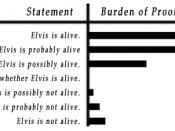Before discuss, I have built a plan which helped me to organise my essay:
A. What is a Presumption of Innocence
B. Four examples why presumption of innocence matters:
1. Burden of Proof:
(a) Evidential Burden of Proof
(b) Exceptional reversal of the Legal Burden (Insanity)
2. Standard of Proof
3. Miscarriages of Justice
4.Bail
C. Right to Silence
Presumption of Innocence.
The presumption of innocence is not explicitly stated in the Constitution but is implict in the requirement of Art. 38.1 that 'no person shall be tried on any criminal charge save in due course of law'.
In the Europenion Convention on Human Rights: 'everyone charged with a criminal offence shall be presumed innocent until proved guilty according to law'#
As Ireland and England are parties to the ECHR# the Act 6(2) is relating to it's law.
Defendant is presumed innocent until a jury reaches a guilty verdict based on the evidence against the defendant, in fair trial.
The defendant has a right to be innocent till he found guilty.
If a person committed any crime but the prosecution can not present any evidence or had presented but not enough of it to a jury, then the defendant can not be acquitted on this crime.
The Burden of Proof leads to the presumption of innocence. The burden of proof means the obligation to prove a fact. The general principle is that the party who establish the truth of certain facts must also prove them. In other words the party, who was moved to the court, must prove all facts necessary for the purpose. The burden of proof is an obligation of shifting nature and during trial of the case it shifts frequently. The amount of evidence required to shift upon a party, the burden displaing a party,


